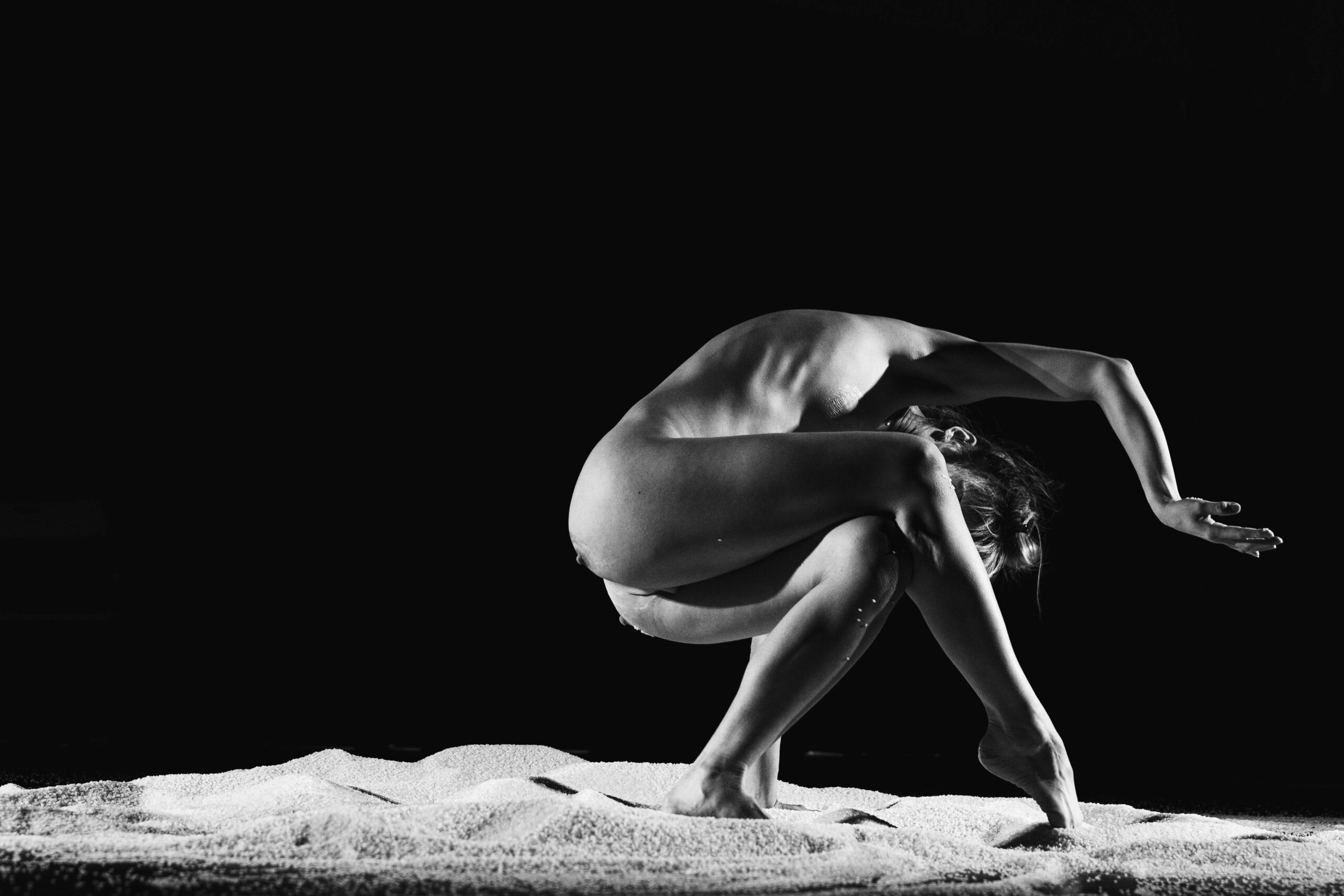Theater has always been an art form that combines different media—today, this includes digital technologies. The Ars Electronica Festival 2025 showcases some of the most exciting examples.
Digital forms of expression are no longer just part of experimental performances; traditional theaters are also increasingly turning to digital technologies. Ars Electronica has been exploring these new trends in theater as part of a three-year ACuTe project in collaboration with partners from across Europe. ACuTe is a European innovation project that uses new technologies to rethink theater—from stage design and dramaturgical development to audience engagement. The project has resulted in several productions and a wealth of new methods and artistic approaches. Some of these will now be presented as part of the “Theater & Digital Media” program focus at the Ars Electronica Festival 2025. The focus will not only be on theater productions themselves, but also on relevant media projects with innovative ideas.
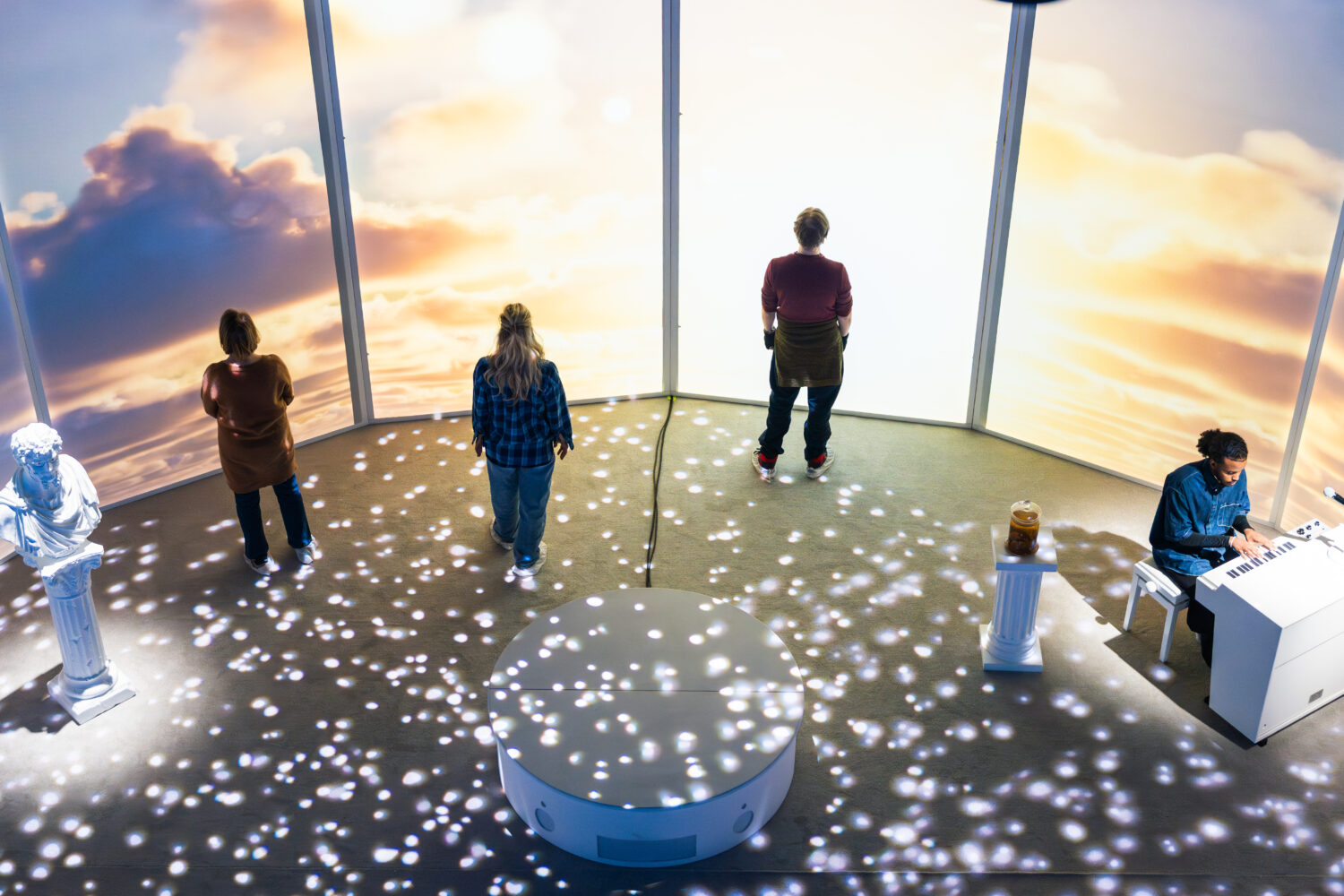
Many of these works focus on the relationship between human and non-human actors. In “The Trial Against Humanity” by Det Norske Teatret (NO), an omniscient artificial intelligence (AI) named Omnitron questions the existence of humanity and ultimately even wants to wipe it out—a rational and cold act, but one that Omnitron understands as an expression of its love for the planet. Director Peer Perez Øian (NO) invites the audience to question the AI’s verdict and defend themselves against its accusations in this interactive play.
Audience as part of a virtual simulation
A similarly critical view underlies “Ekklesia”: a virtual reality-based immersive experience by Benjamin Seuffert and Lukas Joshua Baueregger (DE), developed at the Augsburg State Theater. Eight participants at a time can build a new civilization together. Every decision about which building is placed where has consequences. It influences not only the appearance of the city, but also various aspects of a prosperous society. At the end, participants return to the real world, receive an evaluation of their virtual society, and can use the space for open discussion.
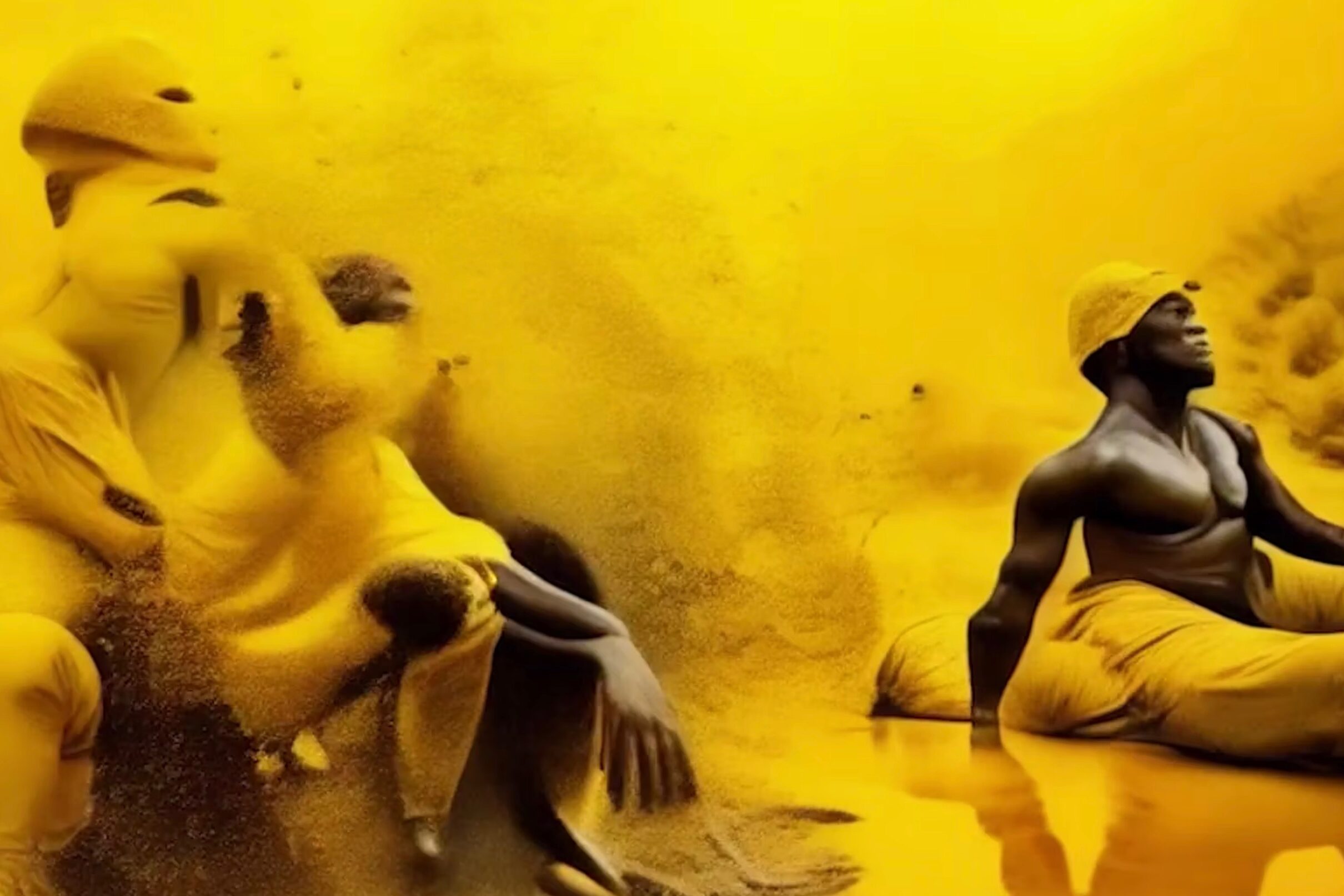
The interactive ritual presented by Victorine van Alphen (NL) in “The Oracle” is also an immersive experience. Eight participants at a time are guided through a ritual journey in a space created from screens. The performance draws on indigenous philosophies and questions how human subjectivity is constantly being reconfigured by visual culture and algorithmic structures.
Human subjectivity is also at the center of AREYOUARE: performer Silke Grabinger (AT) interacts with a robot vacuum cleaner, a kitchen robot, and a robot dog. The three robots not only interact with her, but also with each other—and in unpredictable ways.
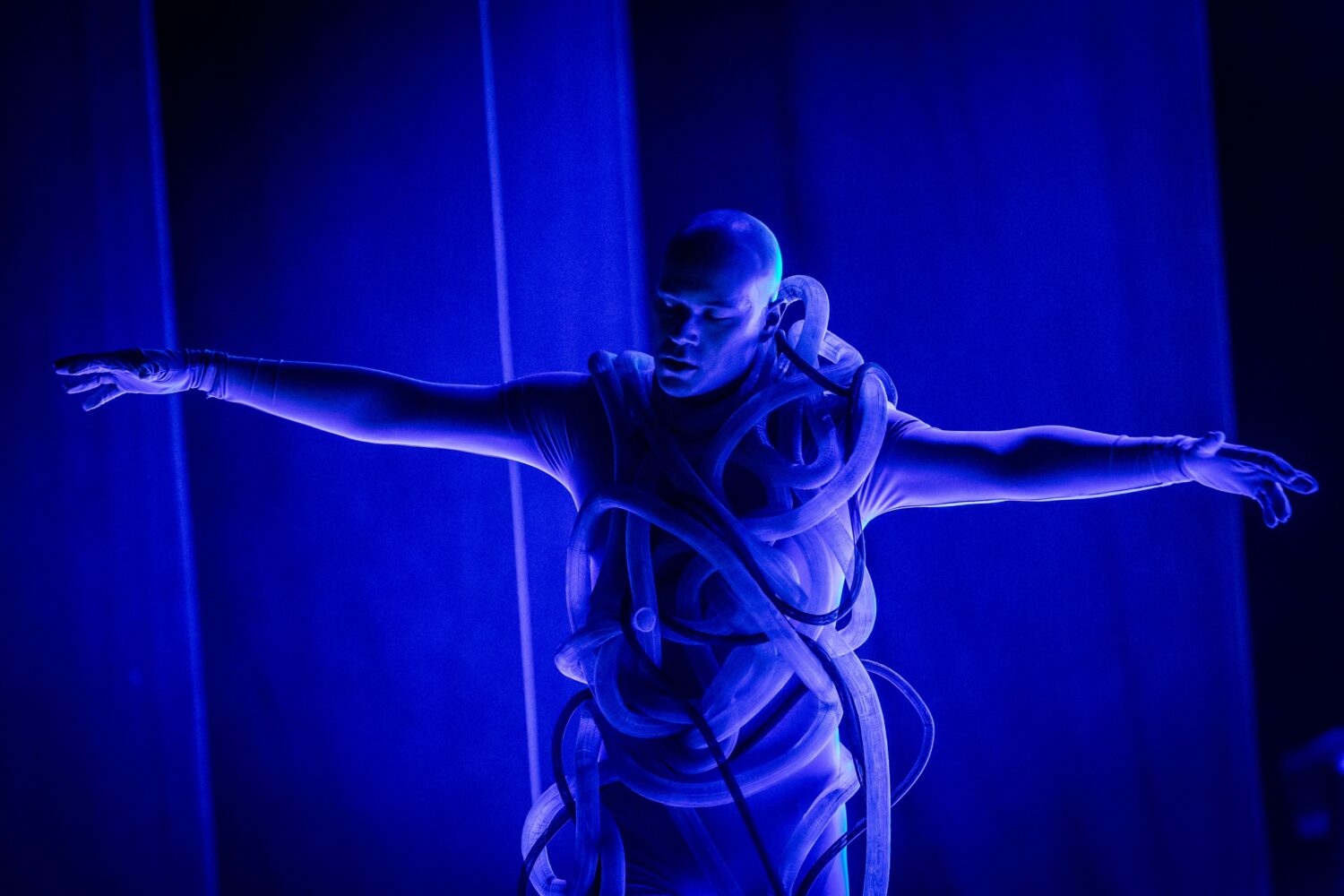
Like the flap of a butterfly’s wings
Elsewhere, digitality becomes the grammar of storytelling. The Butterfly project by the Fondazione Teatro Comunale di Modena is a joint production by students from Helsinki, Gdańsk, and Modena. The aim was to rethink opera production processes using sustainable digital infrastructures and audience interaction. The initiative invited sixteen-year-old students to be the driving creative force behind the artistic process. The students took on the creative direction and developed the concepts for three short opera pieces together in online meetings and with AI tools. This resulted in a new form of collective authorship. Each phase of the opera production was carefully designed, like the eponymous flapping of a butterfly’s wings.
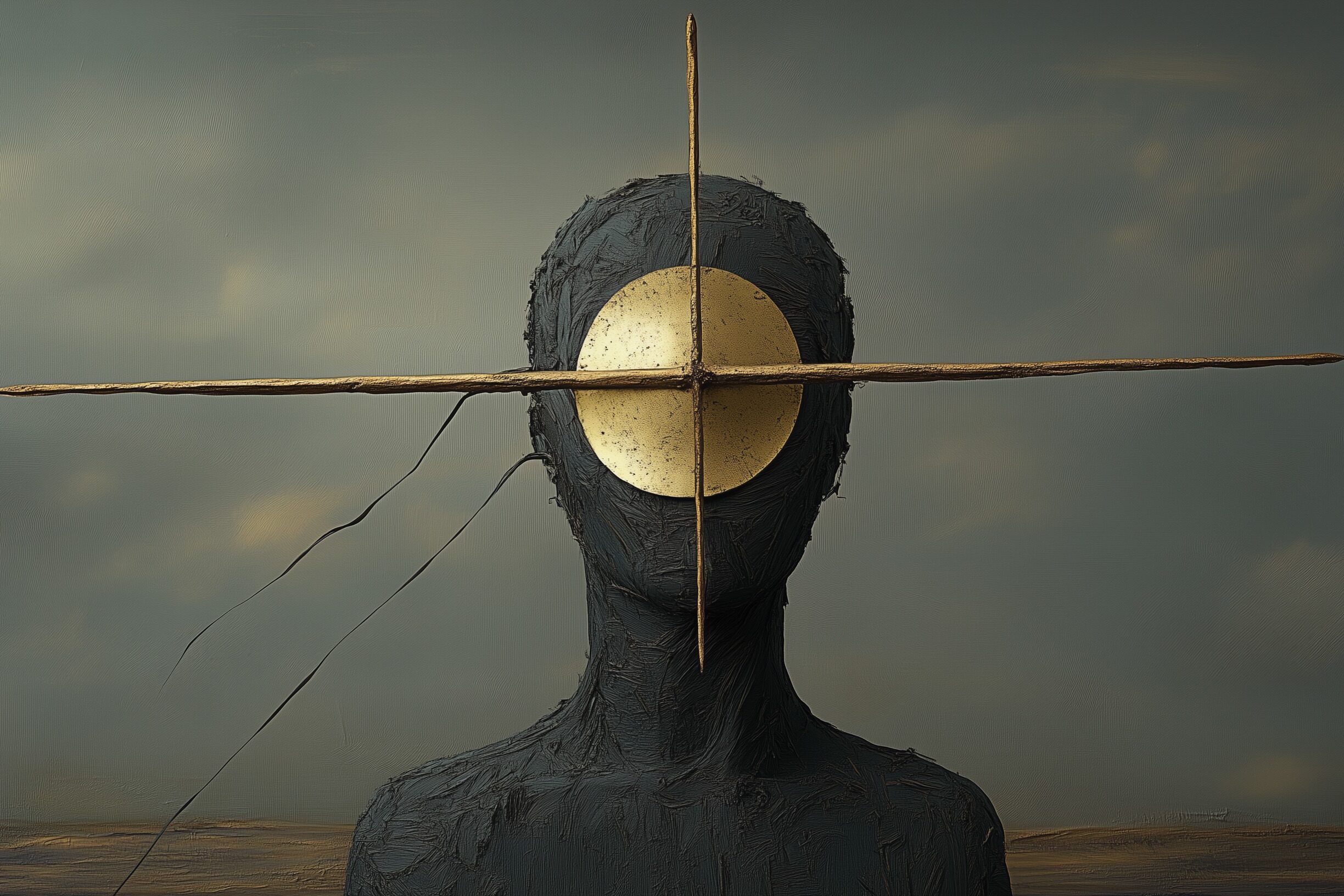
Orchestral music meets visual staging
The grand concert night of this year’s Ars Electronica Festival will also be dedicated to opera. In Viktor Ullmann’s opera “Der Kaiser von Atlantis” (The Emperor of Atlantis), composed in 1944 in the Theresienstadt ghetto, Emperor Overall declares war on everyone – but Death, who is supposed to lead the campaign, refuses to play along and goes on strike. Directed by David Bösch (DE), the Postcity railway hall is transformed into a spectacular stage where the orchestra music of the Filharmonie Brno, conducted by Dennis Russell Davies (US), meets visual productions by Cori O’Lan (AT).
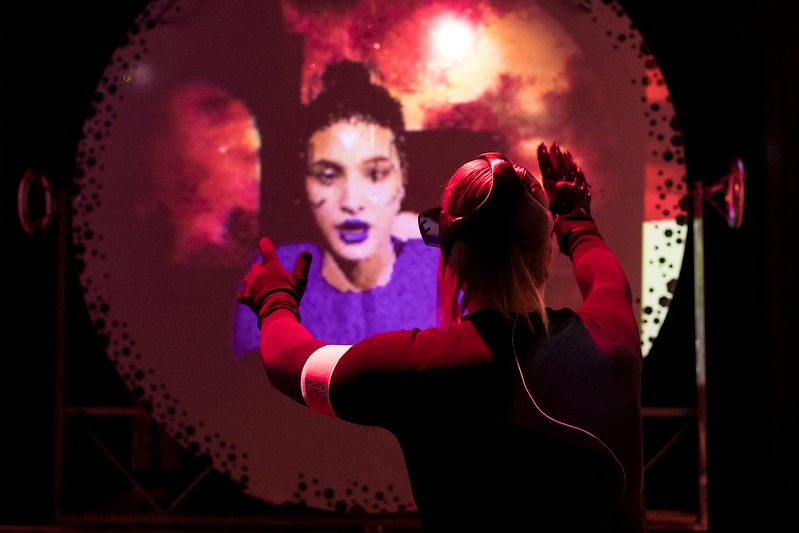
Another visual highlight is “White Hunger” by Oxi Koskelainen (FI), brought to Linz by the Oulu Theatre. This science fiction play is set in a dystopian Finland of the future and is based on the highly acclaimed novel by Aki Ollikainen. It is a story about the will to live, social inequality, and human solidarity.
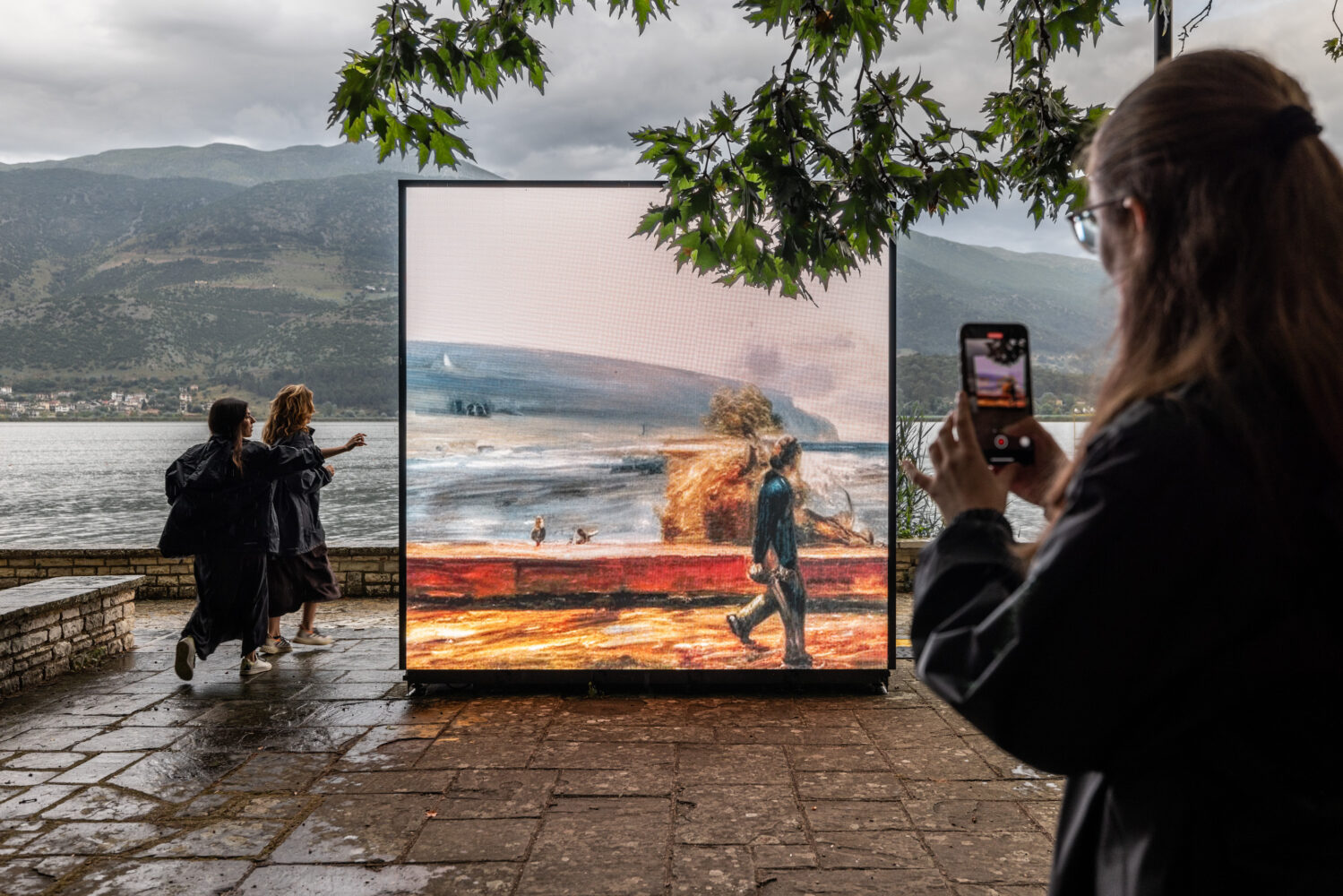
Artificial vision in public spaces
The installation “Parallels” by Marc Da Costa (PT) and Matthew Niederhauser (US) makes perception itself a dramatic theme. Machine learning transforms an LED wall into a portal through which viewers can experience the world and themselves through the lens of a neural network. This is achieved by a camera behind the wall continuously recording images of the surroundings, which are then reinterpreted and presented on the screen. This creates a dialogue between machine perception and real space.
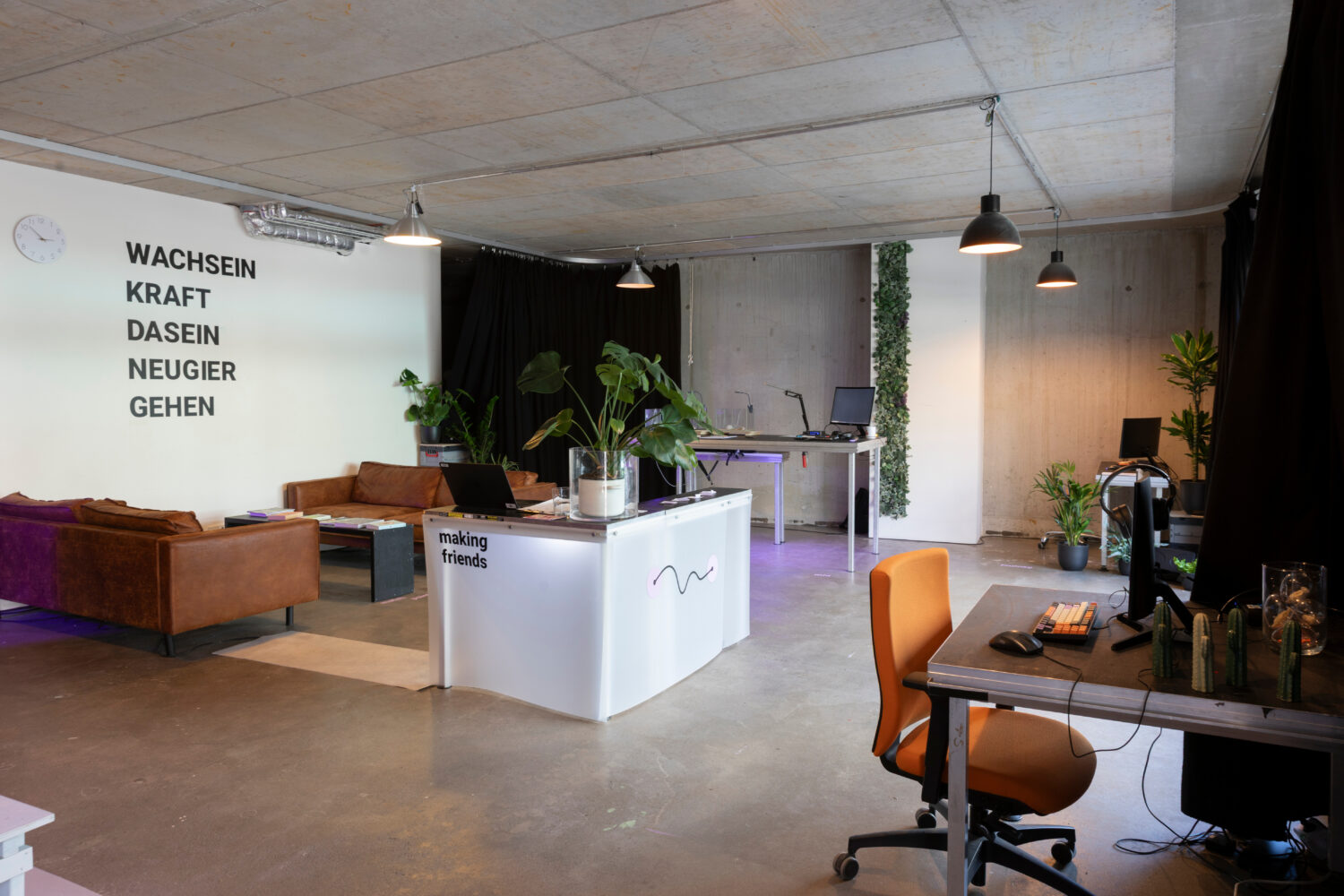
A stage that is not tied to a specific location
The festival program also includes five works by the Game and Object Group of the Ernst Busch Academy of Performing Arts (DE). They all deal with the question: How do we shape ourselves and how do we tell stories—through what we play, who we befriend, and how we remember? Exploring identity formation and memory with the help of toys and sound architectures creates a stage that is no longer tied to a fixed location, but is distributed and responsive.
Discussion and personal exchange
In addition to the performances and installations, there will also be a focus day as part of the symposium. AI in theater raises numerous questions, such as how the interaction between performers and audiences can be expanded or how theater can work with AI in an operational context. It is worth taking a look at current trends and experience reports in this area.
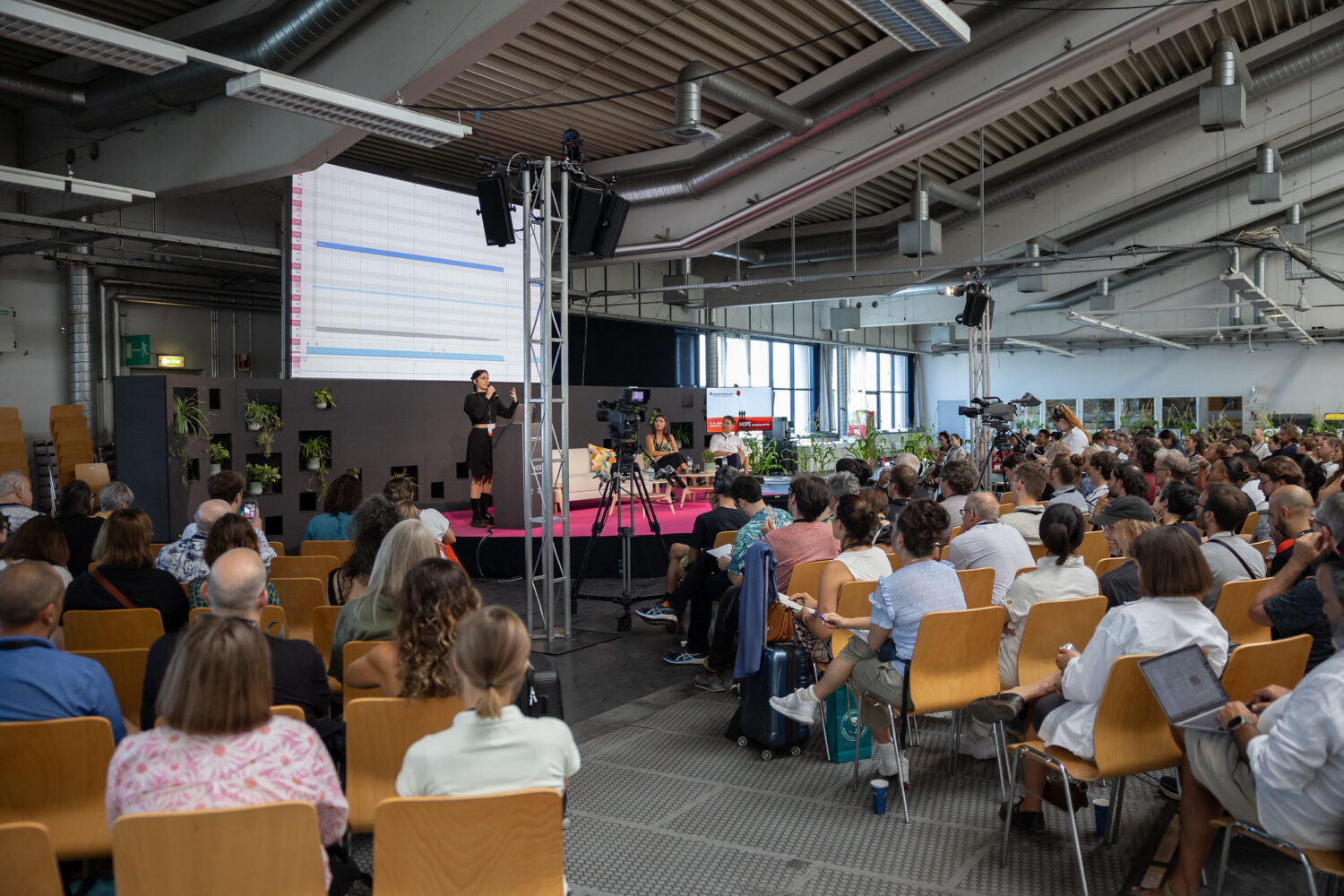
On Saturday, September 6, the symposium “Staged Realities” will take place at Postcity. A practice-oriented program will bring leading technologists, artists, and researchers from the field of AI in theater and the performing arts to the stage. At the town hall meeting, festival visitors will have the opportunity to network with the community. The workshop with Pablo Palacio (ES), Daniel Bisig (CH), and Farzaneh Nouri (IR) will introduce the “AI Toolbox,” a set of generative tools for creative work with AI in the performing arts.
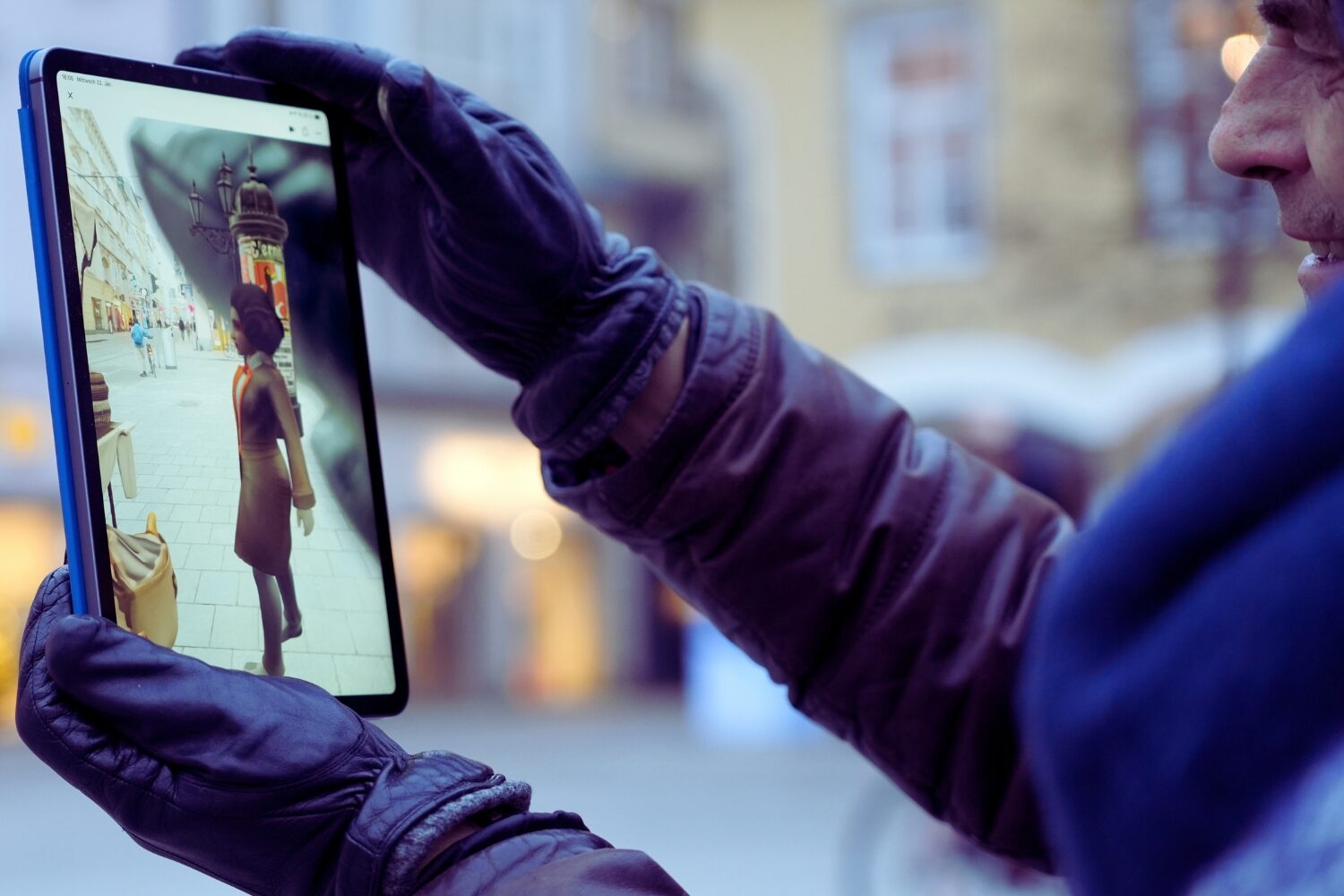
Stories of remarkable women in Linz
The augmented reality walk “Fearless Women*: Immersive Narratives and Real Battles” transforms Linz into an interactive stage. The artist duo Oona Valarie and Ufuk Serbest (AT) focus on the stories of women* who have fundamentally shaped the cultural and social fabric of the city. Players encounter historical figures such as Louise Aston, a radical writer who defied 19th-century gender norms, and Maria Lüftenegger, a pioneer in shipbuilding whose technical innovations remain largely unknown. The project is organized by FIFTITU%, a network for women* in art and culture based in Upper Austria.
With all the talks, keynote speeches, case studies, and interactive elements, this festival day ultimately unfolds like a grand theater production.
The Digital Theater theme will be featured at the Ars Electronica Festival from September 3 to 7, 2025, with a variety of projects at the intersection of theater and digital media. The complete program can be found here.
*Presented in the context of ACuTe. ACuTe is co-funded by the Creative Europe Programme of the European Union.
